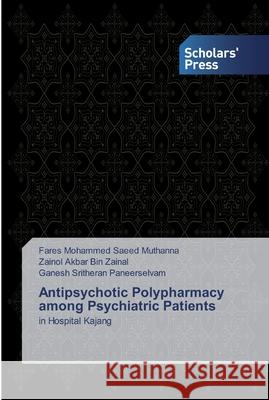Antipsychotic Polypharmacy among Psychiatric Patients » książka
Antipsychotic Polypharmacy among Psychiatric Patients
ISBN-13: 9786202311526 / Angielski / Miękka / 2020 / 104 str.
Antipsychotic polypharmacy is a routine practice despite guidelines to avoid combining medications that have not been successfully trialed. This practice results in severe side effects and creates unnecessary expense for patients, although many medical practitioners prescribe antipsychotic combinations to treat difficult and acute psychosis. Minimal empirical evidence support the benefits, safety, risks, efficacy, and proper antipsychotic polypharmacy practices, and there are no data available in Malaysia despite recurrent and prevalent antipsychotic polypharmacy. Thus, this study was conducted to determine the proportions and patterns of antipsychotic polypharmacy and possible associated risks among patients. This retrospective study was conducted among patients prescribed multiple antipsychotic medications at Kajang Hospital, in Malaysia, from June to August of 2017, and data were collected from patients files admitted to the hospital between January and December 2016. The risks and usage of polypharmacy were assessed on the basis of clinical outcomes, including prescription medication non-adherence, adverse drug effects, drug-drug interactions and and mortality.











